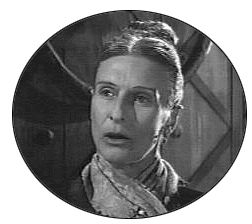
their commander, Blücher,
WoW is this true?
This makes little sense, particularly for someone with his title. “Complacency” and calculated risk are totally different animals.
“Complacency” is to patiently sit in camp and wait for the enemy to gather their forces for co-ordinated action. There is nothing “complacent” with outmaneuvering between superior enemy forces to grab the advantage of interior lines of communication and piecemeal opposition.
That such an article comes from “Head of War Studies at the Royal Military Academy, Sandhurst” may go some distance in explaining the peculiar lack of British military initiative in the Army’s recent campaigns.
^
The key to Napoleon’s success was that he was a living computer. His mental skills enabled him to bring greater force to bear in the required place at the key moment in time. Everything thing he did - his strategy, his planning, his logistics, his tactics were all geared towards that objective. As a result, he won every fought battle he fought - except for one. And that is the one where Blucher did what he promised Wellington he would do and brought superior force to bear in the required place at the key moment in time.

their commander, Blücher,
The French army collapsed at Waterloo when the French Imperial Guard broke.
"La Garde recule. Sauve qui peut!" ("The Guard retreats. Save yourself if you can!").

"I said dry, with an olive you peasant!"
BS! Napoleon was anything but complacent. He was just outgeneraled by Wellington during the battle. Plus, he was very ill at the time with either colitis or hemorrhoids, and could not effect his presence at key points in the battle, as he had done in victories past, since he could not ride his horse.
... where his complacency after Borodin and the sack of Moscow undid him.
1) The French army of 1814-1815 was not nearly the same terrifying military that crushed the coalitions in 1804-1805. Most military historians, including David Chandler, admit that the French army had significantly deteriorated by 1807, which is before Portugal, Spain, and of course, Russia. Conscription by 1810 had been greatly expanded, and by 1814 included 16 and 60-year-olds.
2) Napoleon's officer corps was shattered. His finest commander, including Murat (his finest cavalry commander), were already gone, many killed in Spain and Russia. At Borodino alone, Napoleon lost 13 generals killed!!! His chief of staff, Berthier, known for writing the most precise of orders, died falling off a house the year before Waterloo, and Napoleon's own pitifully worded instructions to Marshal Grouchy, to "stay at Blucher's back" sealed his doom by depriving Napoleon of 33,000 men in the heat of battle. Berthier never would have allowed such sloppy orders to go out.
3) The aura of the French military had been destroyed in Spain and Portugal. The confidence that they could beat Wellington alone, let alone in concert with other great powers, was not there. After Russia, it was totally shaken. The only ones not afraid were those too young to have experienced battle.
4) Absolutely Napoleon was to blame for "delaying" the attack at Waterloo until the afternoon---but that was precisely because the rain had soaked the ground turning it to mud. Duout warned Napoleon that he would not be able to move the artillery as fast as normal, depriving Napoleon of his typical ability to focus fire on specific parts of the British line.
5) Wellington, though having fewer dependable troops, nevertheless conserved his manpower by hiding them behind the ridges. This had the effect of not only preserving them from artillery fire, but in stunning and shocking both Ney's cavalry (which charged over the ridges into squares) and the subsequent "Old Guard" infantry advance, which again was staggered by the previously undetected reserves.
The fact is, even without Blucher arriving on the flank, Wellington had beaten Napoleon by the end of the day. The Old Guard was crushed, much of the French army was running, and Grouchy, with the only "fresh" reserves, was neither fresh---having marched for two days---nor able to link up with Napoleon because he was separated by Blucher's army.
Finally, Napoleon himself was assisted from the field right at the crucial moment due to his stomach cancer. There was nothing he, nor any other Frenchman, could have done to win that battle after Ney's cavalry charge.
Seems to me that Napoleoen, like Hitler afterwards, was finally undone by a gambling problem.
It is also instructive to the complacency that we see on our side as the “democrats” appear to self destruct. We will learn what some have always known about the left, they will lick their wounds and unite before November no matter who is at their head. They believe in winning, they believe in Lennin’s dictum “two steps forward, one step back”. Better to have 10% of something, than 100% of nothing.